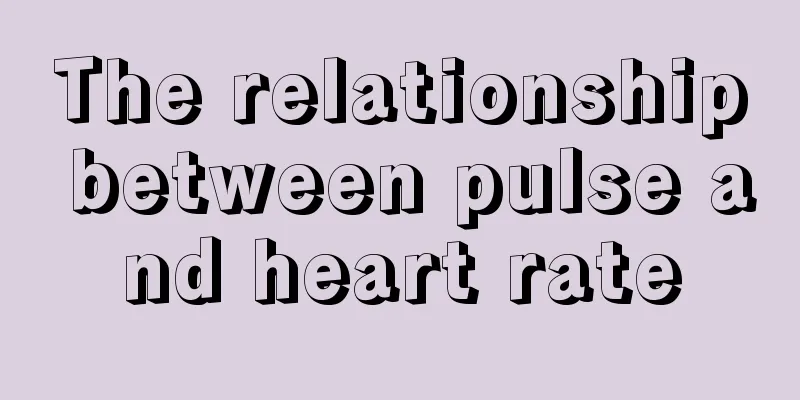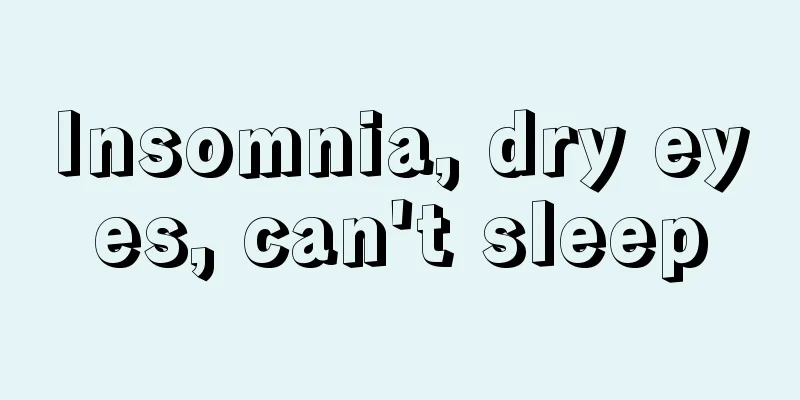The relationship between pulse and heart rate

|
Heart rate refers to the frequency of heartbeats, and pulse refers to the frequency of pulse beats. Of course, under normal circumstances, that is, when a person is healthy and not exercising, the pulse and heart rate are basically the same. Both are important ways to measure whether the heart and body are healthy. Of course, if the human body has some organic diseases, such as heart problems such as atrial fibrillation, there will be a certain discrepancy between the pulse and heart rate. 1. The relationship between pulse and heart rate Heart rate and pulse are equal when the body is normal. It may vary in cases of heart disease such as atrial fibrillation. 2. What is pulse?
The pulse is the pulsation of the artery that can be felt on the human body surface. The human circulatory system is composed of the heart, blood vessels, and blood, and is responsible for the transportation of oxygen, carbon dioxide, nutrients, and waste in the human body. The blood is squeezed into the aorta by the contraction of the left ventricle of the heart and then distributed to the arteries throughout the body. Arteries are tubes formed by elastic connective tissue and muscle. When a large amount of blood enters the arteries, the arterial pressure will increase and the diameter of the arteries will expand. This expansion can be felt in the arteries at the shallower part of the body surface, which is the so-called pulse. A normal person's pulse and heartbeat are consistent. The normal adult heart rate is 60 to 100 times per minute, usually 70-80 times per minute, and the average is about 72 times per minute. The rate is slower in the elderly, at 55 to 60 beats per minute. The pulse rate is affected by age and gender, with fetuses beating 110-160 times per minute, infants beating 120-140 times per minute, toddlers beating 90-100 times per minute, and school-age children beating 80-90 times per minute. 3. What is heart rate
Heart Rate: A professional term used to describe the cardiac cycle, which refers to the number of heart beats per minute, based on the first sound. Heart rate. In modern Chinese, heart rate is interpreted as "the frequency of heart beating". Frequency is the number of times something happens per unit time. The two explanations combined mean the number of times the heart beats within a certain period of time, that is, how fast the heart beats within a certain period of time. There are significant individual differences in the resting heart rate of normal adults, with an average of around 75 beats/minute (between 60-100 beats/minute). Heart rate can vary depending on age, gender, and other physiological conditions. |
<<: Anti-inflammatory drugs that do not stimulate appetite
>>: Can I take anti-inflammatory drugs if I have had gastric perforation?
Recommend
Is it harmful to boil hot water repeatedly?
I believe everyone should know that if you only d...
Right middle cerebral artery stenosis
It is often said that it is important to have a s...
What are the benefits of washing your face with vinegar water
White vinegar is a very common condiment in our l...
The effect of beer on muscles
Beer has a relatively large impact on muscles bec...
Hormone facial treatment and repair methods
Hormone face is caused by long-term use of cosmet...
We must be on guard against the causes of laryngeal cancer in time
In recent years, the incidence of laryngeal cance...
How to avoid nursing misunderstandings about testicular cancer
Although testicular cancer is a common phenomenon...
What are the effects of honey and vinegar? Can it help lose weight?
Honey plus vinegar has a certain weight loss effe...
Causes of intestinal obstruction after rectal cancer surgery
Causes of intestinal obstruction after rectal can...
Clinical symptoms of testicular cancer
For humans, cancer is a very scary malignant tumo...
Do you know the transmission routes of hepatitis A?
Hepatitis A is a common liver disease in life. Pa...
How to sober up faster
Drinking is inevitable during festivals or when s...
What to do if your hands are frozen and cracked
In winter, the temperature is generally low in mo...
What factors can cause lung cancer
Lung cancer originates from the bronchial mucosal...
How to treat colorectal cancer
Many patients with colorectal cancer are worried ...









